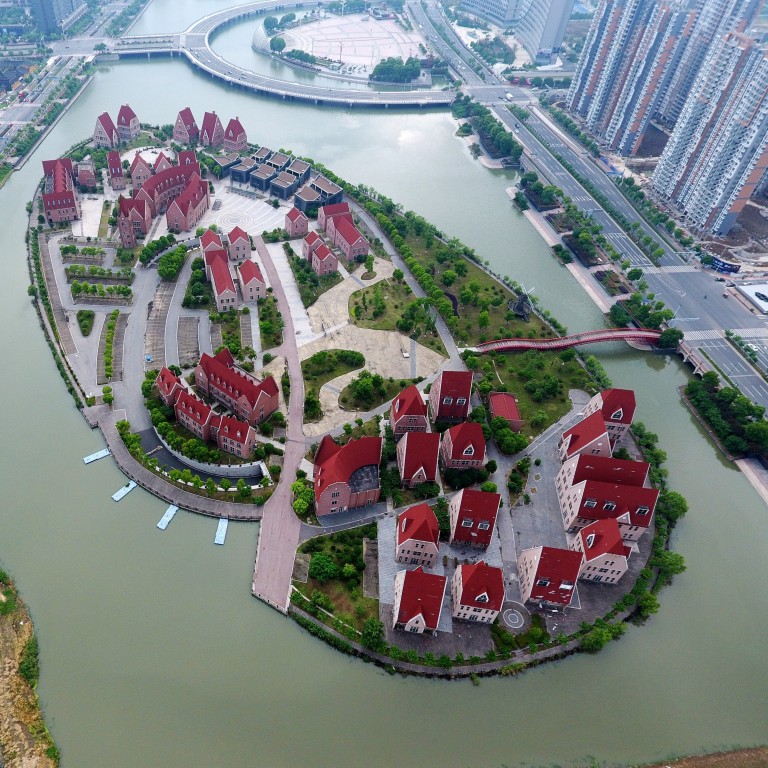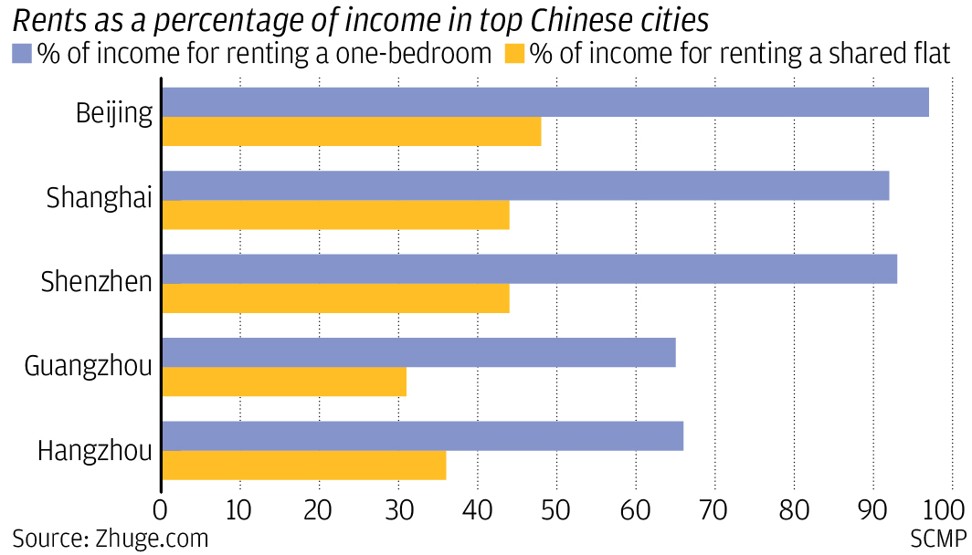
Suzhou tightens property curbs for the fourth time in 2019 as overheating home market has defied policies to cool prices
- The tightening came after heated property price and sale in Suzhou
- Other developments, including a policy see-saw in Kaifeng, and funding tightening, signal no ease in property control
Suzhou, a city near Shanghai of interlocking canals and waterways, has tightened its real estate regulations for the fourth time this year, as the city’s overheating home market defied policies to bring affordability within reach.
The local government doubled the tax return period in the city – an eligibility criterion for immigrant buyers of Suzhou’s homes – to two years, and broadened its jurisdiction to the entire city, including the Kunshan and Taicang counties, according to a Wednesday announcement.
“The tightening policy in Suzhou certainly does not bode well for the Politburo’s stance on the property sector,” said the CCB International Holdings’ analyst Siu Fung Lung. “The policy is shifting toward a hawkish stance, from the more lenient statement of stabilising home, land price and market expectation in early 2019.”
Interactive Graphics: China’s tiered cities and how they are classified
The prices of new residential property at the Suzhou Industrial Park – the district with the best jobs, most schools and most expensive homes – jumped by 8.6 per cent in the first half to 36,212 yuan (US$5,270) per square metre, almost as expensive as Shanghai, a metropolis double its size. In Xiangcheng district, prices soared by 22.7 per cent during the period, according to E-house data.
“The further tightening is harsher than what the market had expected,” said Yan Yuejin, a research director with E-house China R&D Institute. “It signals that [Chinese President Xi Jinping’s edict] of ensuring that housing is for living, not speculation will remain the theme that anchors property policies for the rest of the year. There is no hope for any significant change in housing policy.”
Across China, local authorities had been put on notice to sing to the same tune. Kaifeng, a third-tier city of 5 million residents in Henan province, last week rescinded a relaxation policy within 24 hours under pressure from higher authority. The city, which served as the Chinese capital during the Northern Song dynasty, had failed to sell several land plots, as average home prices fell by more than 7 per cent in the final five months of 2018, after spiralling upward during a 2017-2018 boom.
In addition to purchase eligibility control, Beijing is also trying to limit almost every financing avenue for developers to ensure they can’t buy land at elevated prices.
Earlier this month it announced fresh restrictions on developers’ foreign-debt sales. Limitations have also been placed on onshore bonds and trust financing, an important shadow-banking channel. Banking regulators is inspecting 75 banks in 30 cities to crack down violations in lending to developers and homebuyers.


